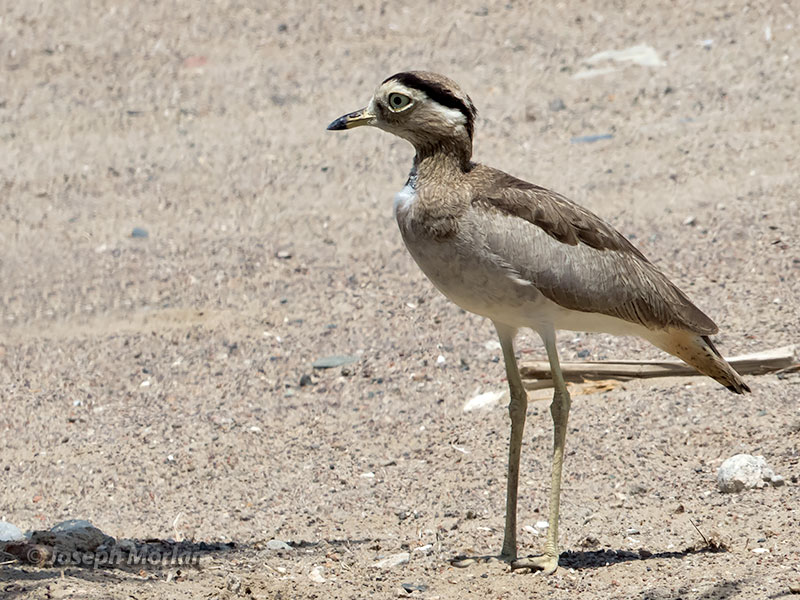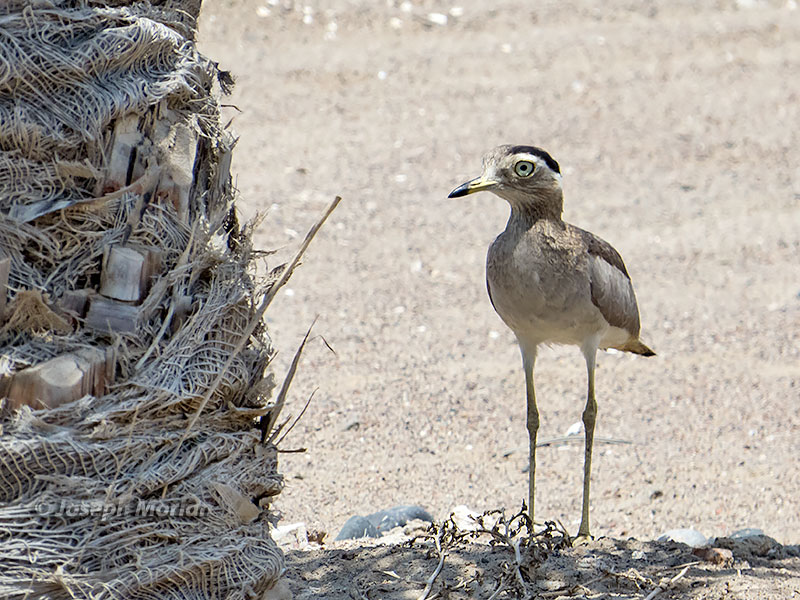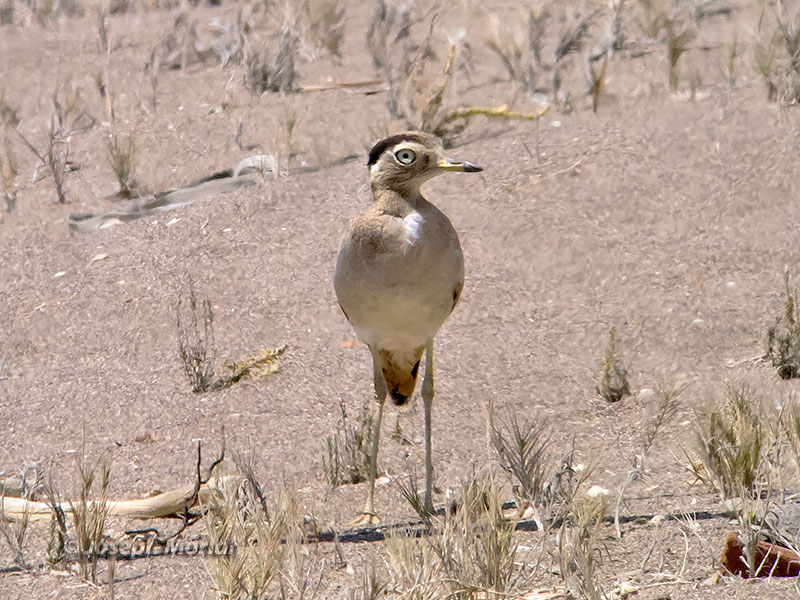


Canon PowerShot SX50 HS

Digiscoped with Panasonic DMC-LX5 | Nikon FieldScope III | 30XWA | hand-held (no adapter).
This largely nocturnal species is confined to the coastal deserts of western South America. Its life history is poorly known. It's nest and eggs were not described until 1981. Thick-knees are in their own family formerly thought to be related to Bustards but similarities due to convergence.
References:
Hume, R., Kirwan, G.M. & Boesman, P. (2018). Peruvian Thick-knee (Burhinus superciliaris). In: del Hoyo, J., Elliott, A., Sargatal, J., Christie, D.A. & de Juana, E. (eds.). Handbook of the Birds of the World Alive. Lynx Edicions, Barcelona. (retrieved from https://www.hbw.com/node/53771 on 17 January 2018).
Peruvian Thick-knee (Burhinus superciliaris), In Neotropical Birds Online (T. S. Schulenberg, editor). Cornell Lab of Ornithology, Ithaca, New York, USA. retrieved from Neotropical Birds Online: https://neotropical.birds.cornell.edu/Species-Account/nb/species/petkne1
Williams, Morris D. (1981). "Description of the Nest and Eggs of the Peruvian Thick-Knee (Burhinus superciliaris)". The Condor. 83:183–184.